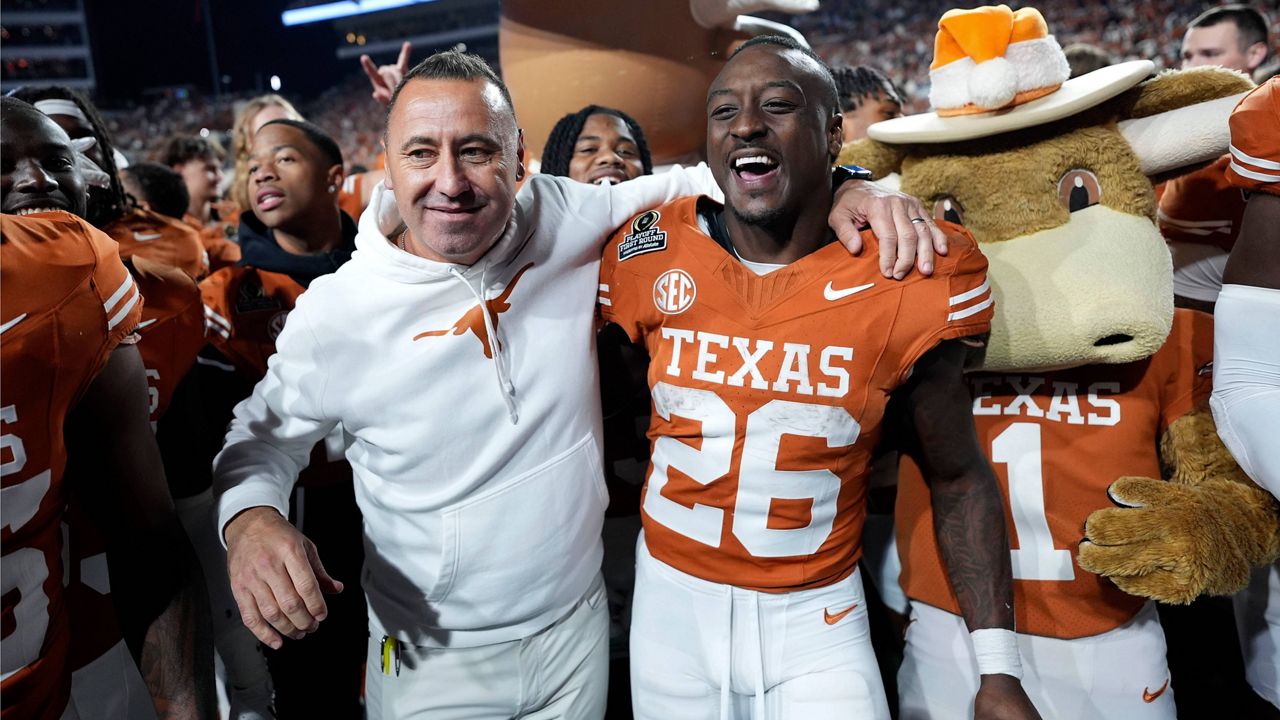Sports
Michigan cannot fire coach Sherrone Moore for cause for known NCAA violations in sign-stealing case

US LBM Coaches Poll: Georgia shows weakness, but don’t read too much into it
The latest US LBM Coaches Poll is out and Georgia remains at the top despite a close call against Kentucky in week 3.
Sports Pulse
The University of Michigan and football head coach Sherrone Moore have agreed to a contract under which the university appears to have agreed not to fire Moore for cause based on its current knowledge of Moore’s involvement in the alleged sign-stealing scandal centering on former football staff member Connor Stalions.
The NCAA issued a notice of allegations in case last month. The notice indicated that Moore could face a suspension and a show-cause penalty for allegedly deleting a thread of 52 text messages with Stalions in October 2023, on the same day that the alleged sign-stealing scandal came to light.
The contract — which USA TODAY Sports obtained Monday under an open-records request – states that Moore can be suspended without pay or fired for cause “if the University determines that the Head Coach has been involved in a violation of the Governing Rules, whether prior to or after the Effective Date of this Agreement.”
That is fairly standard language in college sports coaching contracts.
Moore’s contract goes on to state: “Notwithstanding the foregoing, a violation of the Governing Rules which occurred prior to the Effective Date, to the extent the University had actual knowledge of the facts or alleged facts that are the basis for the violation prior to the execution of this Agreement by all parties, shall not be deemed a basis for termination with cause …”
The contract has a start date of Jan. 27, 2024, but it was signed by Moore and Michigan athletics director Warde Manual on Sept. 6, 2024, and by Michigan President Santa Ono on Sept. 10, 2024.
The full execution of the deal comes nearly eight months after the university promoted Moore to head coach following Jim Harbaugh’s departure to become head coach of the NFL’s Los Angeles Chargers.
At the time of his hiring as head coach, Moore signed a memorandum of understanding, or MOU, with the university that outlined the basic pay and general provisions of his eventual contract. But the MOU between Michigan and Moore stated that his offer is “contingent upon executing a full employment agreement within 90 days of signing this MOU” − a deadline that passed April 25.
In addition, the MOU did not include some of the important, more detailed language that serve as the cornerstones of head-coaching contracts − particularly when it comes to possible acrimonious situations such as a coach being fired for cause. Moore, who previously worked as Michigan’s offensive coordinator, is facing potential punishment from the NCAA as part of its investigation into the alleged sign stealing operation.
What is Sherrone Moore’s salary and buyout?
The financial terms and the scheduled length of the agreement are as they were outlined in the MOU. The deal is set to run through Jan. 31, 2029, and Moore’s basic compensation for this season is $6 million, including the annual $500,000 retention payment Moore would receive if he is Michigan’s head coach through Jan. 31, the day of each contract year. The deal also provides for 2% annual increases in his current $500,000 base salary and $5.5 million in what the contract calls “additional compensation.”
If Michigan were to fire Moore without cause, the school would owe him an amount equal to 75% of the base salary and “additional compensation” payments left on the agreement, subject to Moore having a duty to find another job and Michigan’s payout being offset by his income from that job. At present, the start value of the payout would be close to $19 million.
Sherrone Moore’s contract not unprecedented
While the restriction on Michigan’s right to terminate Moore for cause is unusual, it is not unprecedented.
Kansas officials and men’s basketball coach Bill Self signed a contract in November 2023 that included a similar restriction. That agreement was executed a little less than a month after the NCAA’s Independent Resolution Panel announced that Self will not face additional penalties from an NCAA infractions case that dates to 2017, finding that Kansas’ self-imposed penalties in the 2022-23 basketball season were sufficient.
Kansas won the 2022 NCAA championship while in investigative limbo. At the beginning of the 2022-23 season, the university self-imposed a four-game suspension for Self and assistant coach Kurtis Townsend, along with various recruiting restrictions, hoping to head off more significant penalties.
The new contract specifies that the university will not fire Self for cause “due to an infractions matter that arises from the same set of operative facts considered in” the recent IARP decision.
Contributing: Tom Schad and Lorenzo Reyes, USA TODAY









